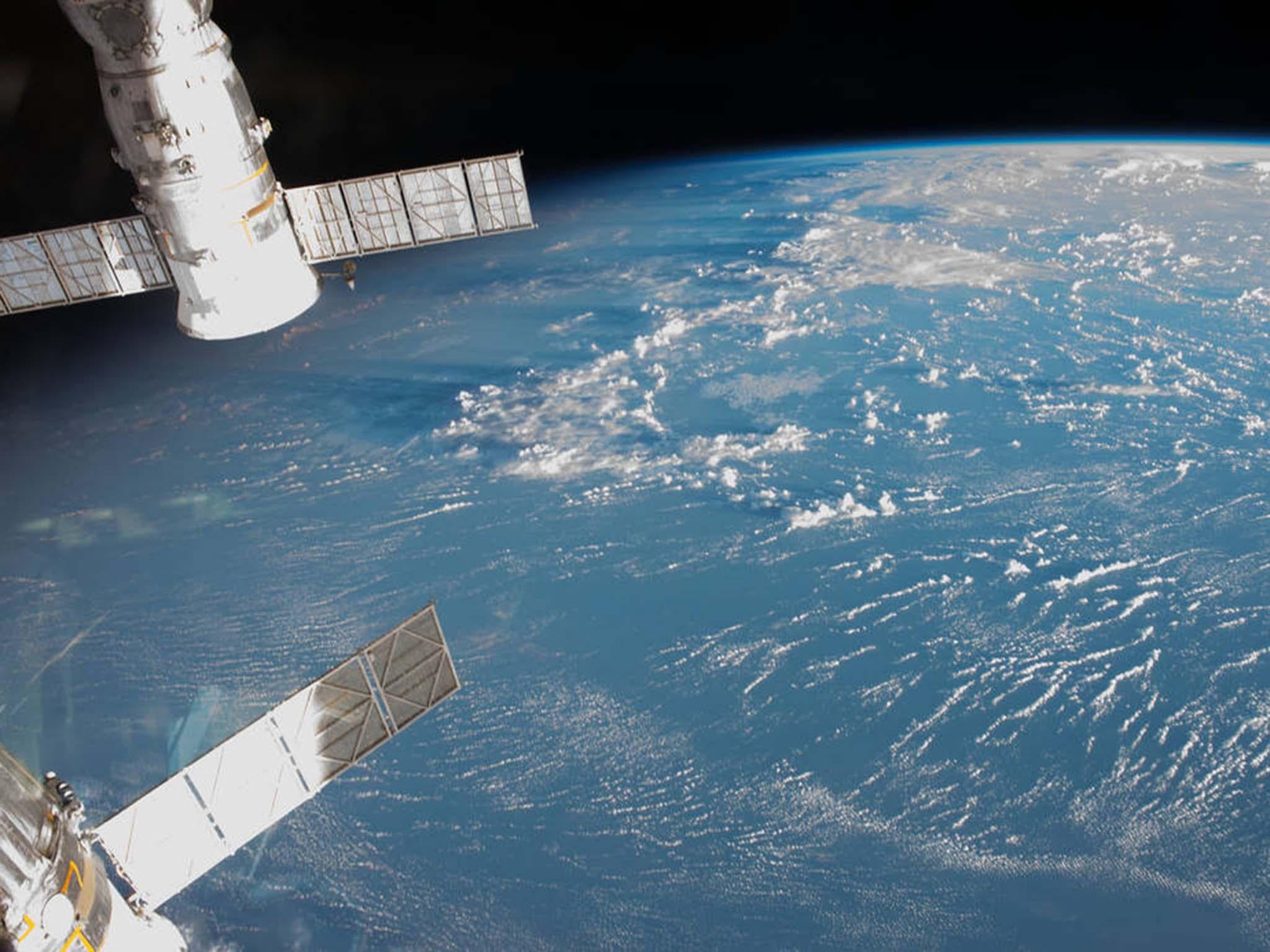Britain and US accuse Russia of firing anti-satellite space weapon
Unprecedented intervention by UK as tensions with Moscow escalate

Your support helps us to tell the story
From reproductive rights to climate change to Big Tech, The Independent is on the ground when the story is developing. Whether it's investigating the financials of Elon Musk's pro-Trump PAC or producing our latest documentary, 'The A Word', which shines a light on the American women fighting for reproductive rights, we know how important it is to parse out the facts from the messaging.
At such a critical moment in US history, we need reporters on the ground. Your donation allows us to keep sending journalists to speak to both sides of the story.
The Independent is trusted by Americans across the entire political spectrum. And unlike many other quality news outlets, we choose not to lock Americans out of our reporting and analysis with paywalls. We believe quality journalism should be available to everyone, paid for by those who can afford it.
Your support makes all the difference.Russia has been accused of launching an anti-satellite space weapon in a move the US and Britain charge is a breach of trust and a dangerous escalation of the arms race with risky consequences for the international community.
The Western allies had previously accused the Kremlin of testing anti-satellite weapons. But this is the first time there has been an accusation that an “on orbit” weapon, one that is based in space, has been fired.
Washington and London charge Russia with using subterfuge to hide the operation. They claim that the anti-missile weapon was sent from Cosmos 2543, which was supposedly in space for survey and inspection.
Air Vice Marshal Harvey Smyth, head of the UK’s Space Directorate said: “Actions of this kind threaten the peaceful use of space and risk causing debris that could pose a threat to satellites and the space systems on which the world depends. We call on Russia to avoid any further such testing.”
General John W Raymond, commander of US Space Command and US Space Force chief of space operations, said: “This is further evidence of Russia’s continuing efforts to develop and test space-based systems, and consistent with the Kremlin’s published military doctrine to employ weapons that hold US and allied space assets at risk.”
The accusations come at a time when relations between the UK and Russia are already strained – and just days after the release of the long-awaited report by the Intelligence and Security Committee (ISC) into Russia influence in British politics.
The probe accused successive Conservative prime ministers of failing to investigate whether the Kremlin had intervened in the Brexit referendum, despite years of warnings.
The foreign secretary, Dominic Raab, also this week claimed Russian actors sought to interfere in the 2019 UK general election using a leaked government document detailing post-Brexit trade talks with the US.
Russian and Chinese anti-satellite weapons were cited by the Trump administration as the reason why the US created its own Space Force last December.
The US administration had announced in the days leading up the Russian missile launch on 15 July that a Space Security Exchange summit was being planned with Russia.
Christopher Ford, the US assistant secretary of state currently performing the duties of the under secretary for arms control and international security, said: “This event highlights Russia’s hypocritical advocacy of outer space arms control, with which Moscow aims to restrict the capabilities of the United States while clearly having no intention of halting its own counterspace programme – both ground-based anti-satellite capabilities and what would appear to be actual in-orbit anti-satellite weaponry.”
The Russian action, say Western security officials, has been ratcheted up with the increasing use of satellite for a variety of reasons including intelligence gathering, communications, navigation and early-warning of military activities.
Only four countries – Russia, the US, China and India – have demonstrated an anti-satellite capability over the past decades. And space is being seen as a new frontier with a number of states establishing command and control for space-based systems. The latest Russian is part of a pattern of recent Russian space activity.
In February, the US military said two Russian satellites manoeuvred close to an American satellite, and in April Moscow test-fired a ground-based satellite interceptor.
In August 2018, Washington expressed concerns about a Russian satellite exhibiting “very abnormal behaviour” may be a weapon – an accusation Moscow described as “unfounded and slanderous”.
In military terms space has already become the new frontier with several countries organising specific commands in their armed forces to deal with both the defensive and offensive aspects of protecting their essential space-based systems.
Civilian space projects are being used, it has been claimed, as “Trojan Horses” for attempted strategic domination. The head of Russia’s space organisation criticised US plans to return astronauts to the moon as “a big political project,” warning that it was speaking with China about establishing a lunar base of operations.
Last year, Nasa announced its Artemis program, the agency’s plan to fulfil plans to have astronauts on the Moon by 2024.
Dmitry Rogozin, the head of Roscosmos, said Russia will not agree to international partnerships being mooted by Washington.
“For the United States, this right now is a big political project. With the lunar project, we are observing our American partners retreat from principles of cooperation and mutual support, which formed in collaboration with the [International Space Station].
“They are perceiving their programme not as an international one, but one resembling Nato,” he maintained.
Join our commenting forum
Join thought-provoking conversations, follow other Independent readers and see their replies
Comments